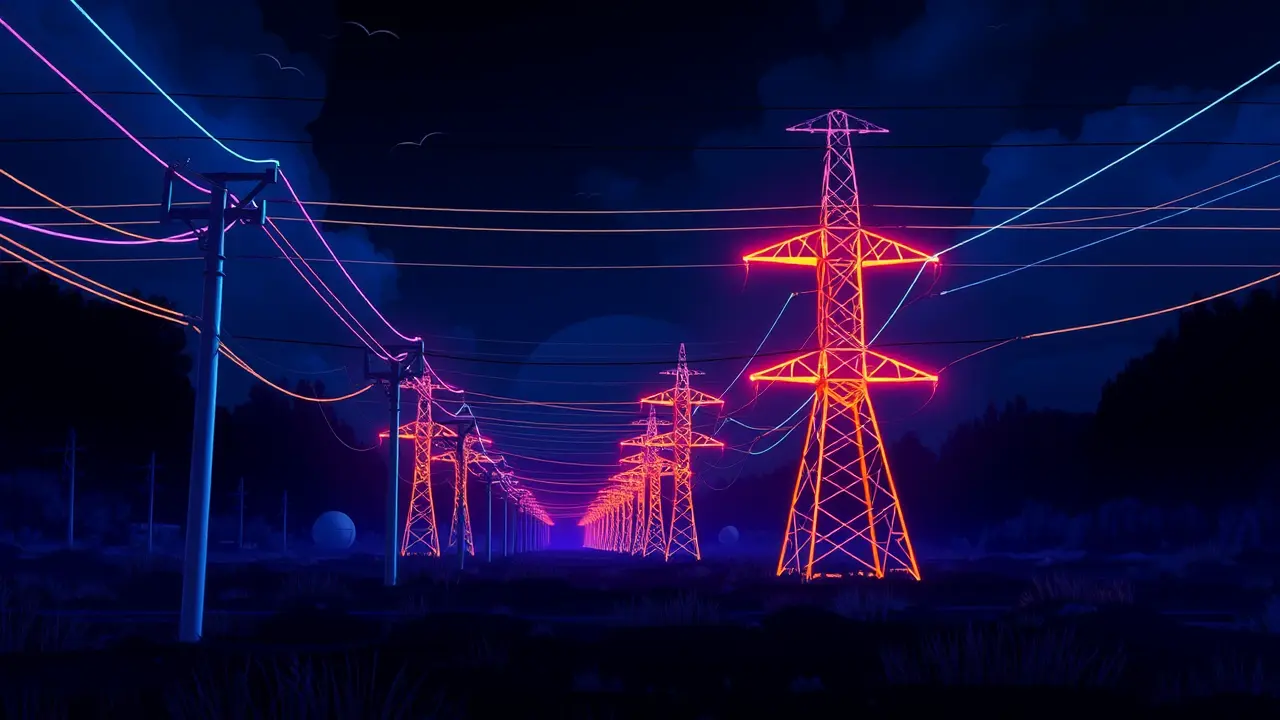Spain's grid operator warns of potential blackout risk.
The warning from Spain’s grid operator, Red Eléctrica, of an 'abrupt voltage variation' posing a tangible blackout risk is not merely a technical bulletin but a stark signal of systemic fragility in one of Europe’s key economies, echoing the kind of low-probability, high-impact scenarios that keep risk analysts awake at night. This alert, while ostensibly about grid stability, must be contextualized within a broader landscape of energy transition pressures, geopolitical tensions, and aging infrastructure that collectively heighten continental vulnerability.Spain, having aggressively pivoted towards renewables—with wind and solar now constituting over 50% of its power generation mix in recent months—faces a paradoxical crisis: the very intermittency of these green sources, celebrated for decarbonization, introduces volatile power flows that can trigger cascading failures if not meticulously balanced by grid inertia traditionally provided by thermal or nuclear baseload. An 'abrupt voltage variation,' a seemingly benign term, is the electrical grid’s equivalent of a seismic shock; it can precipitate a rapid, uncontrolled drop in voltage that protection systems cannot arrest in time, leading to a domino effect of tripped generators and severed transmission lines, plunging regions into darkness within seconds.Historical precedents loom large; the 2006 European blackout, originating in Germany and cascading across the continent, serves as a chilling case study in how a single contingency can escalate, costing billions in lost economic activity and exposing critical dependencies on real-time grid management. Similarly, the 2021 Texas power crisis, driven by a failure to winterize assets, demonstrated how converging risk factors—extreme weather, market design flaws, and operational miscalculations—can coalesce into catastrophe.For Spain, the immediate triggers could be manifold: a sudden, unforeseen drop in wind generation across the Iberian Peninsula coinciding with a surge in demand during a heatwave, a cyber-physical attack targeting substations—a tactic increasingly probed by state actors—or even a fault in the international interconnection with France, which provides crucial backup capacity. The geopolitical dimension cannot be ignored; Europe’s fraught energy relationship with Russia, though less direct for gas-dependent Spain than for Germany, has reshaped continental power dynamics, forcing a recalibration of energy security protocols and stress-testing grid resilience under strained conditions.Expert commentary from Dr. Elena Vargas, a senior power systems analyst at the Comillas Pontifical University, underscores this complexity: 'Our grid is undergoing a fundamental transformation.We are replacing large, predictable generation with distributed, variable sources. This requires a quantum leap in grid intelligence, forecasting, and rapid-response mechanisms.The Red Eléctrica warning is a canary in the coal mine—it signals that our control systems are operating at the razor’s edge of their operational envelopes. ' The potential consequences of a full-blown blackout extend far beyond mere inconvenience; critical infrastructure—hospitals, water treatment plants, digital communications—would face immediate strain, supply chains would seize, and public confidence in the energy transition could erode, potentially fueling political backlash against climate policies.From a risk-analytic perspective, we must model several scenarios: a contained, rolling blackout managed via load-shedding, a multi-hour regional outage requiring complex black-start procedures to restore power, or a worst-case, multi-day collapse that could trigger civil unrest and necessitate international aid. The probability of each scenario hinges on the efficacy of Red Eléctrica’s mitigation strategies, such as deploying grid-scale batteries for frequency regulation, leveraging demand-response programs to shave peak load, and ensuring robust communication with industrial consumers for voluntary curtailment.However, the very issuance of this public warning itself is a strategic maneuver—it serves to manage public expectations, distribute accountability, and potentially catalyze regulatory action for increased investment in grid modernization. In the final analysis, Spain’s voltage variation alert is a microcosm of a global challenge: as nations race to decarbonize, the stability of the electrical grid—the central nervous system of modern society—is being tested in unprecedented ways. The outcome here will not only determine the lights in Madrid or Barcelona but will also provide a critical data point for every other nation navigating the perilous, yet essential, path to a sustainable energy future.
It’s quiet here...Start the conversation by leaving the first comment.
© 2025 Outpoll Service LTD. All rights reserved.
